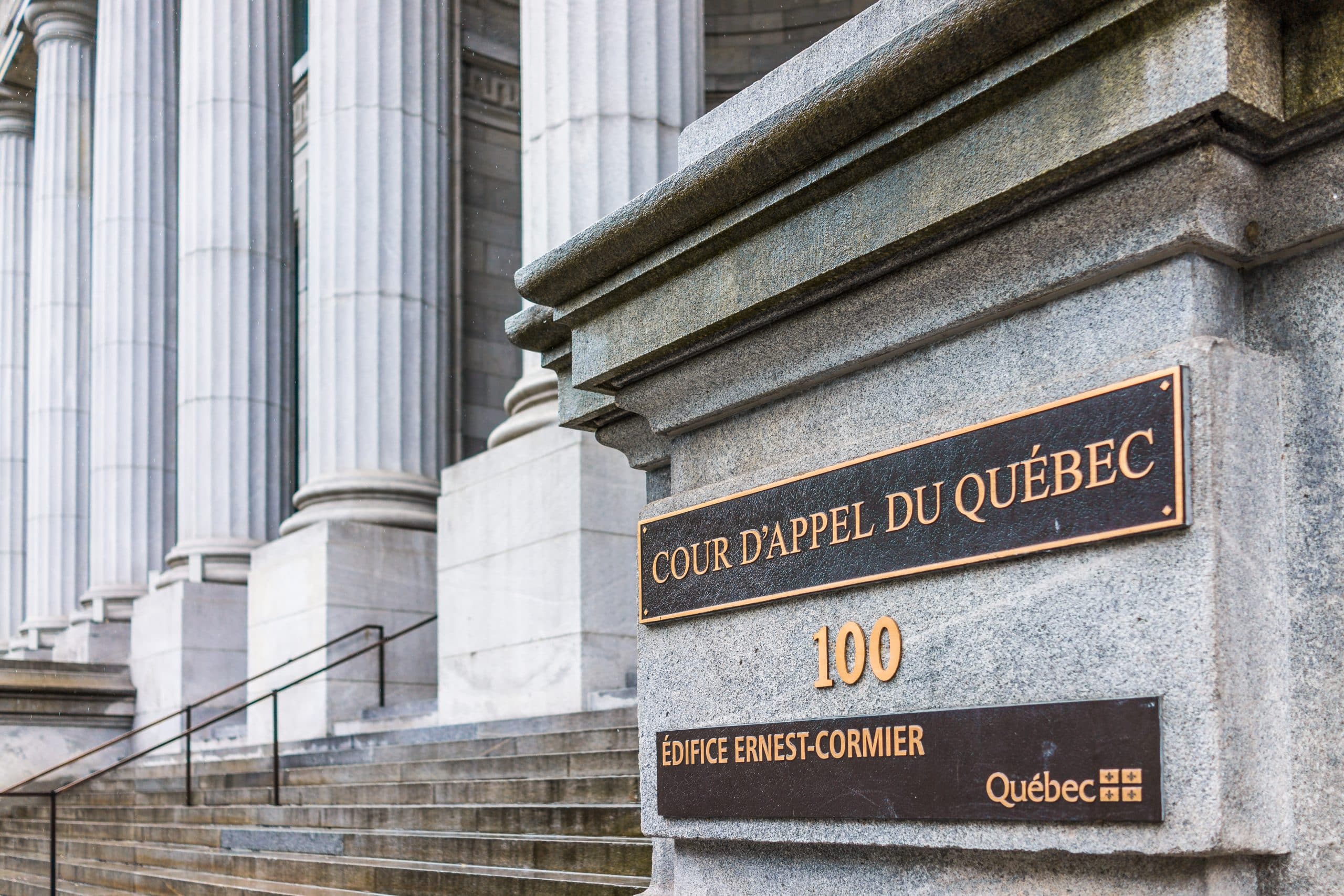
The Quebec Court of Appeal has just ruled that a private company may be the victim of “cruel and unusual treatment or punishment”, a violation of the Charter.
Case litigated of the APCHQ, the Quebec Court of Appeal declares that a company incorporated legal person can benefit from the protection of section 12 of the Charter in order to demonstrate that a fine is grossly disproportionate to the it.
The main argument is that this protection aims to preserve the ” human dignity “.
In this case, the question was find out if a legal person can contest a minimum fine of 30,843.00 $, in 2012, as provided for in section 197.1 of the Building Act (chapter B-1.1).
The courtyard appeal answer in the affirmative.
The company in question had been convicted of having acted as a building contractor without having the required RBQ license.
She was fined $ 30,000, which she considered “grossly exaggerated”.
She then sought to declare invalidates this mandatory minimum fine provided for by the Law on building.
The company was initially unsuccessful, the argument that had been made against him was that a person morality cannot rely on Article 12 because this protection aims to preserve “human dignity”.
Moreover, in his “Guide to the Charter Canadian Rights and Freedoms ”, the government writes that when it question of cruel and unusual treatment, “by this we mean torture or the use of excessive or excessive force by the police “or still with disproportionate prison sentences.
But Judge Dominique Bélanger, who writes on behalf of the majority of the Court of Appeal, was not convinced of this argument.
She writes “we must not ignore the consequences that some people may suffer as a result of sanctions of an economic nature”. “The fine can be cruel for the legal person. A legal person can suffer a cruel fine which manifests itself in its harshness, severity and a kind of hostility ”.
“I do not believe that Canadian society would find it acceptable or in the natural order of things, in all circumstances, for a totally disproportionate fine to lead a legal person or organization to bankruptcy, thus jeopardizing the rights of its creditors. or forcing layoffs ”.
The courtyard appeal does not, however, decide whether the fine, in the specific case of this company, contravenes Article 12: it refers the case to a judge who will decide if this is the case.
For fair fines and proportional
The APCHQ hopes that this judgment will encourage the government to review fines in the area of construction and more particularly those provided for in article 197.1 of the Building Act , so that they can be fair and proportional.
“The problem with the current regime is that by providing for mandatory minimum fines, they do not allow the courts to impose a fair and proportionate fine based on specific circumstances. Currently, the total fine exceeds $ 45,000 and can be imposed on a bona fide contractor who performs small contracts. The Building Act , in its current form, does not distinguish between small and large jobs, as well as contractors who defraud the government by moonlighting versus those who make a mistake in good faith. As it stands, the fine for not holding a license from the RBQ clearly compromises the viability of a business or jeopardizes the jobs of the company’s employees ”.
“In our opinion, if the courts were granted the possibility of establishing fair and proportional fines, it is clear that the amount of fines would be lower in the majority of situations” explains François Vincent, Vice-President – Government Relations and APCHQ public relations.
SOURCE Association of Quebec construction and housing professionals (APCHQ)


0 responses on "Construction. Businesses can invoke the Canadian Charter of Rights and Freedoms to avoid paying a hefty fine"